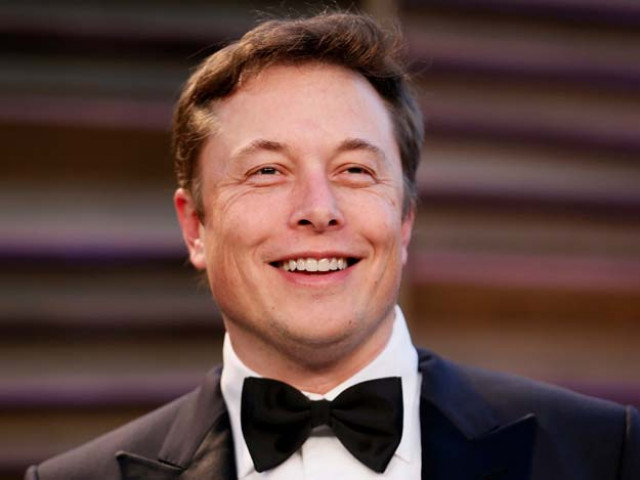Elon Musk’s next project may solve all your maid issues
Tesla Motors CEO hopes to build robot that can be asked to perform a task orally

Elon hopes to build a robot that can be asked to perform a task orally PHOTO: REUTERS
The CEO of Tesla Motors and SpaceX recently announced that he aims to design a robot to do house chores.
“[We are] working to enable a physical robot ... to perform basic housework. We believe that learning algorithms can eventually be made reliable enough to create a general-purpose robot," Musk said in a blog post which was also signed by Sam Altman, the president of venture firm Y Combinator, and two staff members at Open AI.
Mark Zuckerberg unveils 2016 plans for artificially intelligent butler
They hope to build a robot that can be asked to perform a task orally. They also aim to have the robot ask for clarification if it doesn't understand the request.
However, last year both Musk and Altman expressed concern over the threat posed by machines with artificial intelligence. In a 2014 speech, Musk called artificial intelligence "our biggest existential threat" and warned against "summoning the demon" through its development.
"Humanity's position on this planet depends on its intelligence," he told CNN late last year. "So if our intelligence is exceeded it's unlikely that we will remain in charge of the planet."
Similarly, at a tech forum last year, Altman said, "I think AI will ...most likely lead to the end of the world. But in the meantime there will be great companies created with serious machine learning."
Earlier, Musk had put forward his theory that we were all likely living in someone else's video game.
“There’s a one in billion chance we’re in base reality,” Musk said at Recode’s annual Code Conference.
Odds are we are living in someone else's video game, says Tesla CEO Elon Musk
Musk put forward his argument which he believes is the strongest in favour of our being in a simulation. “Forty years ago we had pong. Like two rectangles and a dot. That was what games were. Now, forty years later, we have photorealistic, 3D simulations with millions of people playing simultaneously and it’s getting better every year. Soon we’ll have virtual reality, augmented reality.”
He went on to say that with time, the games will become indistinguishable from reality, even if that rate of advancement drops by a thousand from what it is now. So, imagine if it’s 10,000 years in the future, which, according to him, is nothing on the evolutionary scale.
“So given that we’re clearly on a trajectory to have games that are indistinguishable from reality, and those games could be played on any set-top box or on a PC or whatever, and there would probably be billions of such computers or set-top boxes, it would seem to follow that the odds that we’re in base reality is one in billions,” he added.
Have something to add to this story? Share it in the comments.
This article originally appeared on CNN.



















COMMENTS
Comments are moderated and generally will be posted if they are on-topic and not abusive.
For more information, please see our Comments FAQ